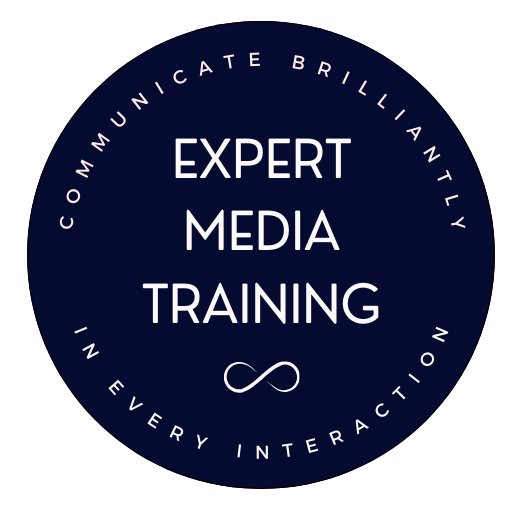
How to Build Your Personal Brand
With traditional publicity vehicles and the Web’s resources at hand, making a name for yourself is easier than ever.
By April Joyner | @aprjoy | May 24, 2010
It’s much easier to market your business when customers readily associate a face with your brand. Many companies, from Apple to Zappos, have drawn success from their leaders’ knack for capturing the public’s attention and inspiring new schools of thought in their field. Today, business owners have an array of options for getting in front of potential customers. The Web and social media have opened up new avenues to share expertise and reach people of influence. And with the concept of entrepreneurship gaining more prominence in popular culture—even spots on prime-time television—more and more audiences are clamoring to hear from those who have found success starting their own companies. Here are some strategies for gaining greater exposure.
Building Your Personal Brand: Picking an Area of Expertise
Before seeking the spotlight, the first question you should answer is, “What do I have to offer that no one else can?” While many people claim expertise in a broad topic such as marketing, identifying subsets of that field in which you have a unique experience will help you stand out from the crowd. For instance, Leslie Haywood, founder of grilling accessories maker Charmed Life Products, who has appeared on The Big Idea with Donny Deutsch and Shark Tank, regularly speaks about her experiences of founding a company as a breast cancer survivor and a mother of young children.
It also helps to identify personal qualities that you want others to associate with your brand. A magnetic personality is often a key differentiator in a crowded field, particularly for solo practitioners, says Lisa Elia, who runs an eponymous public relations firm in Los Angeles. Once you have established a niche, it’s important to reflect that personality in each of your day-to-day interactions. “It should come across in how you answer the phone, how you greet people who come to your office, how you treat your vendors and your staff,” Elia says. If you seek to become a service guru, for instance, a nasty exchange with a disgruntled customer could end up tarnishing your image.
How to Build Your Personal Brand: Branding through the Web
Nowadays, Google is often the first destination for learning more about a particular person or brand. So after you have identified your area of expertise, make sure your website is up to snuff. The writing on your website should be clear and concise but also reflective of your personality. (For more on good and bad business writing, see this column by Jason Fried.) Elia recommends striking a balance between a friendly and an expert tone: warm and inviting, but still authoritative.
In addition to describing your company’s services, your site should give visitors a good sense of the person behind it—you. Include a personal biography, and don’t forget to add a photo. Posting videos on your site is even more effective in connecting quickly with visitors, says Elia. “I’ve had clients say, ‘I feel like I know you, because I’ve seen your videos,'” she says. “They got a sense of who I was before they even called me.”
Social media can help you extend your brand even beyond your website. To gain more visibility, create profiles on Facebook, Twitter, LinkedIn, and YouTube, which are all proven means of boosting your ranking in Google’s search results. More importantly, they will help you engage with people, particularly key industry contacts, who may not land on your main page. Simply following someone on Twitter and retweeting one of their updates can help you gain notice, Haywood says. “It’s like the highest form of flattery,” she says.
How to Build Your Personal Brand: Writing and Blogging
Regularly conveying your thoughts about your company and industry through writing not only brings increased exposure but also invites discussion from others. The easiest way to find readers is to start a blog, which you can easily create using platforms such as WordPress or Blogger, and update it at least once a week. While your tone will depend upon your personality, it’s best to be as open as possible, says Haywood. One of her posts, for instance, includes a candid description of her first sale, which was made as she was undergoing breast reconstruction surgery. “My personal life and my business are very intertwined,” she says, “and my blog reflects that.”
To spread the word about your blog, include links to it on your main website and in your LinkedIn profile. Whenever you write a new post, let your followers on Facebook and Twitter know by sending out the link to that post. Another way to encourage loyal readership is to allow others to subscribe to your posts, either through a newsletter or an RSS feed. You may also consider joining a blog network. Established networks with loyal followings, such as BlogHer, can help you reach a wider audience more quickly and gain familiarity within a particular niche. Haywood, for instance, blogs at Mompreneurs Online, which features entries from mothers who run their own business.
Once you have begun blogging regularly, you might consider writing at length about your expertise or compiling your best advice into a physical book. Traditionally, doing so has required finding an agent to sell your book proposal, then securing a contract with a publisher. But thanks to services such as Lulu and Xlibris you can publish your book yourself without incurring extraordinary costs. Barry Nadell, the co-owner of employee screening firm InfoLink Screening Services, found that his self-published book was like “having an infomercial that costs nothing.”
How to Build Your Personal Brand: Making Headlines
Appearing in the media as a source of expertise can go a long way toward building your brand. To gain press, identify media outlets that are most applicable to your particular areas of expertise and send them targeted pitches. If you want to be a talking head on radio or television, it also helps to give producers a preview of your personality by referring them to video clips on your site.
As with print, the Web has also democratized the world of radio. Through venues such as BlogTalkRadio, anyone can host their own broadcasts—or find a show on which to appear. Haywood, for instance, has appeared as a guest on several BlogTalkRadio shows, including that of Kim Lavine, author of Mommy Millionaire. To secure guest spots, she searches for relevant shows on the site, then contacts the hosts through Twitter or Facebook. The appearances yield benefits even beyond the initial broadcast; she refers others to the recordings by posting the links on Twitter, Facebook, and her blog.
How to Build Your Personal Brand: Appearing at Events
After you have honed an area of expertise, you will find that there are plenty of opportunities to take your message on the road. Becoming active in professional organizations and attending conferences offer valuable opportunities for networking. As you become more familiar within a certain field, more and more people will call on you to share your expertise. Making an appearance as a vendor at an event can also offer long-term personal branding benefits, says Haywood. She found that it offered a quick means of honing her presentation skills. “It’s the best practice ever,” she says. “By the end of the day, you’ve done your spiel hundreds of times.”
If you seek to book speaking engagements, start locally. Often, community groups call on active members to present workshops and give talks, says Elia. Smaller events also serve as good training grounds to help you refine your message. Organizations such as Toastmasters and professional coaches offer additional help in crafting an engaging speech.
When you are scheduled to attend or speak at an event, make sure to let your followers on the Web know, through your website and social media profiles. After the event, include a video or audio clip of your presentation, if possible. If you seek to pursue a steady stream of engagements, Elia suggests creating a separate page listing your past events and topics of expertise, including speech titles. You might also consider seeking an agent to help you secure more high-profile engagements.


